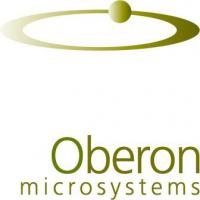Try upgrading to the latest firmware, and you should be good to go.
Hi Chris
What did you change?
Best regards
Cuno
|
||||||||||||||
The Netduino forums have been replaced by new forums at community.wildernesslabs.co.
This site has been preserved for archival purposes only
and the ability to make new accounts or posts has been turned off.
Community Stats
8
Neutral
User ToolsLatest VisitorsPosts I've MadeIn Topic: Invalid address messages when deploying10 August 2015 - 08:09 AM
Hi Chris
What did you change?
Best regards
Cuno In Topic: M2Mqtt Library21 July 2015 - 08:24 AM
Unfortunately it looks like the forum software does not support Internet Explorer. It works in Firefox...
Cuno In Topic: Introducing Llilum, the native-compiled (NETMF) proof of concept17 July 2015 - 06:59 AM
Ah, this may have been a somewhat misleading statement. It is not clear if there will be any shared code eventually, and what it would be. It's too early to tell. The toolchain (apart from VS) and the runtime are completely separate, and the APIs will probably be substantially different as well, at least for the foreseeable future.
Lorenzo made the positioning a bit clearer here: https://github.com/N...mment-122144288
"As llilum gradually comes online, we will see how to integrate llilum into both the netmf ecosystem and the llilc technology."
PS Regarding dynamic loading: "We do know that we will not support features such as dynamic loading with llilum, and that alone suggests that llilum will never replace .NET MF." In Topic: Introducing Llilum, the native-compiled (NETMF) proof of concept13 July 2015 - 11:18 AM
Today, the border between NETMF and the larger .NET implementations is not very clear. Mostly this is a problem of positioning, leading to the question where a given platform stops being a good fit. Maybe we will evolve towards a clearer situation where we have the Raspberry Pi class of microprocessors, with large external memories, dynamic code loading, and Windows IoT on the one hand, and Llilum tools for Cortex-M based systems, with static code and no operating system in the traditional sense.
And possibly we will have real-time capabilities, who knows. In our experience, it is often possible to initialize an embedded application which may involve memory allocation and garbage collection, and then start one or several real-time tasks, which do not allocate any memory. Thus the GC does not run after the initialization step. This is e.g. how we implemented our quadrocopter code in C# (https://www.ghielect...id=12602&page=1). Maybe this approach could be supported more systematically, e.g. by giving compile-time errors wherever real-time code might inadvertantly cause memory allocations.
But I agree: a sandboxed approach that partitions part of the processor bandwidth statically to real-time code would also be the preferred approach as far as I am concerned. My hope is that Llilum will be hackable enough that we could implement something like this ourselves with relatively little effort. For example, it is one of the goals for Llilum that you could provide your own thread implementation. We'll see.
Yes, a COM-based NETMF variant has indeed been considered some time ago.
As for your obsession regarding pluggability
Best regards
Cuno In Topic: Introducing Llilum, the native-compiled (NETMF) proof of concept12 July 2015 - 06:43 PM
This would support dynamic loading and also component evolution in a very clean and neat way, with relatively little overhead. But on the other hand, if a static system is accepted, still a lot of overhead can be shifted to build time, thereby allowing to reach much smaller microcontrollers than the one of a Netduino - and this approach would create less confusion regarding the positioning of NETMF versus the IoT version of Windows.
A COM-based evolution of NETMF was actually considered for the future of NETMF. But the focus for Llilum is to reach smaller microcontrollers. It should also allow for a high degree of hackability, without the need to combine different languages.
| ||||||||||||||
|
||||||||||||||
| This webpage is licensed under a Creative Commons Attribution-ShareAlike License. | ||||||||||||||

 Find content
Find content